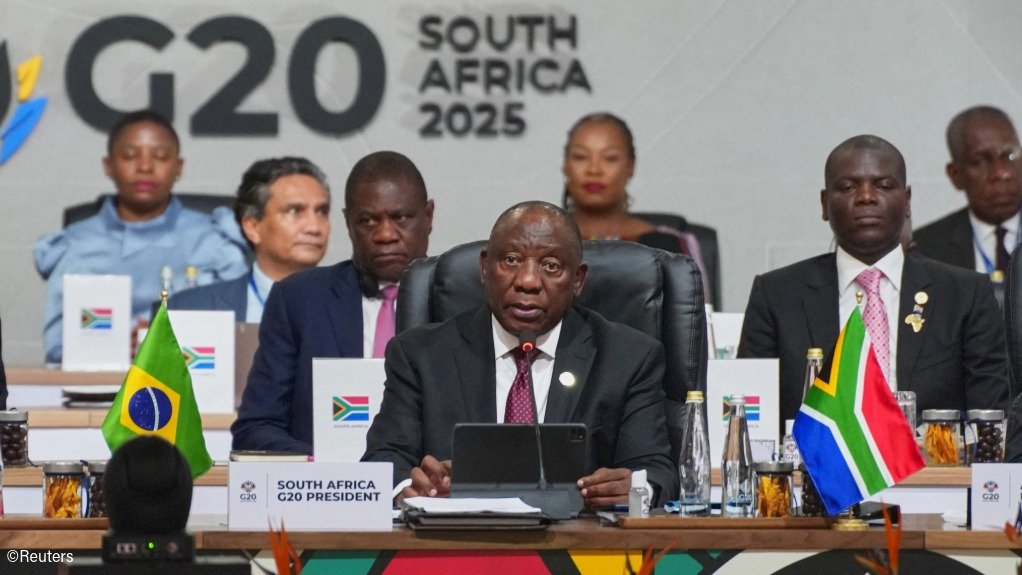South Africa's President Cyril Ramaphosa said on Sunday that the declaration from this weekend's Group of 20 summit reflected a "renewed commitment to multilateral cooperation", concluding a meeting that pitted him against his US counterpart.
Ramaphosa, host of the Johannesburg summit, pushed through the declaration addressing challenges like the climate crisis despite objections from the United States, which boycotted the event.
Addressing the closing ceremony, Ramaphosa said the declaration showed world leaders' "shared goals outweigh our differences".
US President Donald Trump boycotted the November 22 to 23 summit on the grounds of allegations, which have been comprehensively falsified, that the host country's Black majority government persecutes its white minority.
TENSIONS OVER UKRAINE, CLIMATE CRISIS
Trump had also rejected South Africa's agenda of helping developing nations transition to clean energy, cut their crippling debt costs and adapt to climate change-induced weather disasters.
But Ramaphosa secured consensus from the leaders present, aside from Argentina, which did not object to a declaration being made without it. It was the first G20 summit in Africa and the joint declaration used the kind of language long disliked by the US administration.
The document stressed the seriousness of climate change and the need for adaptation, praised ambitious renewable energy targets and decried hefty debt service charges suffered by poor countries.
The summit came as tensions over Russia's war in Ukraine fracture the transatlantic alliance, and after unavailing climate talks at COP30 in Brazil, in which oil-producing and high-consuming nations prevented mention of fossil fuels driving the crisis going in the final declaration.
Brazil's President Luiz Inacio Lula da Silva said on Sunday that both the G20 and COP30 summits showed multilateralism was very much alive.
German Chancellor Friedrich Merz said the United States was mentioned only in passing at the G20 summit and that it played only a minor role as new connections are being forged and the world reorganises itself.
"It wasn't a good decision for the American government to be absent. But that's something the American government has to decide for itself," he said.
SOUTH AFRICA'S SPAT WITH WHITE HOUSE
The US takes over the rotating G20 presidency after Johannesburg, but South Africa rejected a US proposal to send an embassy official for the handover in Trump's place as a breach of protocol.
The White House has accused Ramaphosa of refusing to facilitate a smooth transition of the G20 presidency.
"We have not yet received any formal communication at this stage," South Africa's Foreign Minister Ronald Lamola told media on Sunday. "But we remain open ... It's up to them."
He counted it a great success that the declaration acknowledged the need for climate finance for developing countries.
Aside from the surprise agreement on the declaration, world leaders used the G20 to discuss the Russia-Ukraine war and Trump's plan to end it, on the sidelines, the first of several meetings expected over the coming days.
EMAIL THIS ARTICLE SAVE THIS ARTICLE FEEDBACK
To subscribe email subscriptions@creamermedia.co.za or click here
To advertise email advertising@creamermedia.co.za or click here











